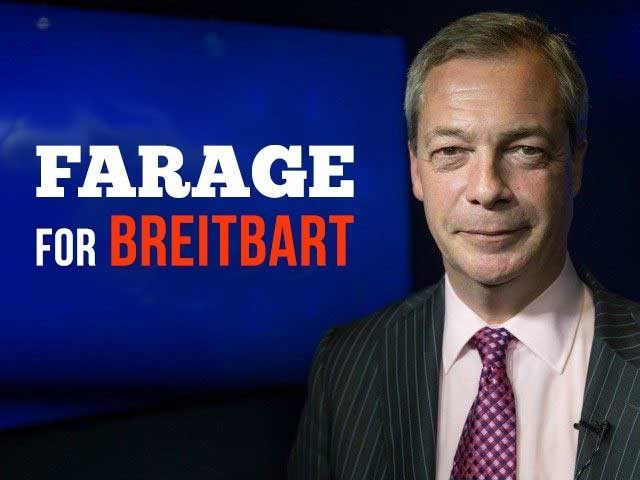There is no doubt that UKIP, as the party that brought about the referendum and played a huge part in the Leave side winning, has a great future ahead of it. But the party is in need of huge reform.
When I think back to our creation in 1993, having followed on from the Anti-Federalist League, I never thought this would be more than a method of protest. Or perhaps, at best, a political pressure group.
Events conspired. Jimmy Goldsmith’s Referendum Party spent lots of money in the 1997 General Election, raising the profile of the European Union as an issue in British politics. Our first breakthrough came when three of us, including myself and Jeffrey Titford, were elected as Ukip MEPs in the European Parliament in 1999. The angry grassroots comprising of lots of World War Two middle-ranking officers suddenly had elected representation.
From that moment on, despite some incredible highs and lows and bouts of Kilroy-Silk self-destructiveness, UKIP’s achievements have been remarkable. We defied in the odds and won the European Elections of 2014 against the expectations of almost everyone. UKIP became the first party in British politics other than Labour or the Conservatives to win a national election since 1906.
Then followed dramatic breakthroughs as the first UKIP Members of Parliament were elected in Clacton as well as in Rochester and Strood.
The 2015 General Election saw the party receive four million votes despite us as a party facing an impossible First Past The Post system that makes it hard for new movements to gain momentum.
Then there is the referendum. Quite simply, without UKIP there would not have been a referendum. I am convinced that the “we want our country back, we want our borders back” message that we took across the country on an open-top double decker energised non-voters to back Brexit. It was those voters who got helped get the Leave campaign over the line.
The EU referendum was promised by a Conservative Prime Minister fearful of losing votes and of mass defections to UKIP. David Cameron promised a referendum to try and ‘shoot the UKIP fox’. The deep irony is that in the last General Election we hurt Ed Miliband and the Labour Party more than the Tories. Not only did we force the referendum pledge but the make-up of Parliament meant that the referendum had to be delivered.
Going forward I believe that there is huge potential for UKIP to win over many more traditional Labour supporters who have been left behind by the modern day Labour Party. The Corbynista brand of politics representing metropolitan, middle class, pro-open border values is far removed from millions of Labour voters, especially those who voted Leave in the referendum.
On the Conservative side of things, after the short-term honeymoon for Theresa May, it is inevitable that a clash will eventually occur between the proper Brexiteers who campaigned for Leave and those that hold a softer, watered-down Brexit position within the Conservative Party, and who would be quite happy for us to maintain open borders and remain in the single market. There is a strong possibility that by 2020 many Tory voters will say “I voted for Brexit, why have we not got our territorial waters back?”
So UKIP now needs to be patient and play the long game, and to live without its velvet-collared, beer-drinking, cigarette-wielding cartoonist’s dream.
I will not attempt to influence the choice of UKIP members in this contest but urge them to vote for the person who will represent the party best on the big media stages and out there around the country, where it really matters.
UKIP’s success would never have happened without the invention of YouTube, Facebook and Twitter. Many of my speeches and messages first found an audience through those channels and we reached millions of people every week during the referendum via streaming of live events and rallies.
My colleagues in Brussels from the Five Star Movement in Italy have shown that you can build a really effective political opposition with an affordable, accessible online activist membership model. UKIP could treble its membership in the first year by adopting this model.
But the barrier to radical change and the modernisation of UKIP was implanted in the mid-1990’s. It is called the National Executive Committee. Many of its current crop are among the lowest grade of people I have ever met. To them, being a member of the governing body of Britain’s third-largest political party is the equivalent of scaling Everest.
People with no qualification in business or politics make the ultimate decisions of whom should be our candidate at a by-election. Or whether the former disgraced Tory MP Neil Hamilton should be given a route back to public life via being elected as an Assembly Member in Wales. It may sound odd to many but I have been a moderniser in UKIP. I have been fought at every step of the way by total amateurs who come to London once a month with sandwiches in their rucksacks, to attend NEC meetings that normally last seven hours.
The new Leader of UKIP should bypass the vanity of such people and make big decisions about UKIP’s future via direct polling of the membership. Yes of course, it brings risk but in a way we get back to the Brexit referendum result. Do you trust the political class or the people? UKIP must trust its members. Whoever wins, if they have the courage to transform the management of our party they will have my wholehearted support.

COMMENTS
Please let us know if you're having issues with commenting.